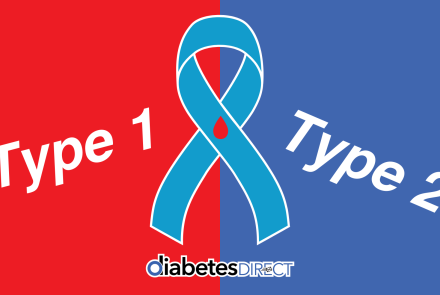How Diabetes Can Impact Your Mental Health (and How to Address It)
Diabetes is a chronic condition that affects your body's glucose processing, potentially leading to a variety of health complications. While diabetes is primarily associated with physical health problems, it can also affect your mental health. In this blog, we will discuss how diabetes can affect your mental health and how to solve these problems.
Depression and Anxiety
People with diabetes are at higher risk of developing depression and anxiety than those without diabetes. This may be due to the stress of managing a chronic condition, the impact of diabetes on daily life, and the fear of complications. Symptoms of depression and anxiety may include:
- sadness
- hopelessness
- irritability
- difficulty sleeping
- changes in appetite
Eating Disorders
Eating disorders such as binge eating disorder and diabulimia (the intentional omission or reduction of insulin to lose weight) are more common in people with diabetes than in the general population. Eating disorders can lead to serious physical and mental health problems, including malnutrition, heart problems, and depression.
Diabetes Distress
Diabetes distress is a term used to describe the emotional and behavioral problems that can arise from living with diabetes. This may include feelings of frustration, anger, guilt, and burnout. Diabetes distress can lead to poor diabetes management, which can in turn lead to physical health problems.
Solutions
There are several steps you can take to address mental health problems related to diabetes:
-
Talk to your healthcare provider: Your healthcare provider can help you manage your diabetes and refer you to a mental health professional if necessary.
-
Practice self-care: Taking care of yourself can help improve your mental health. This may include getting regular exercise, eating a healthy diet, getting enough sleep, and practicing stress-reducing activities such as meditation or yoga. Check out our blog on 5 Mindfulness Activities to Practice Self- Love for more tips.
-
Seek support: Joining a support group or talking to others who have diabetes can help you feel less alone and provide you with practical tips for managing your condition.
-
Consider therapy: Therapy can be helpful for managing mental health problems related to diabetes. Cognitive-behavioral therapy (CBT) is a type of therapy that has been shown to be effective for depression, anxiety, and diabetes distress.
-
Address eating disorders: If you are struggling with an eating disorder, it is important to seek professional help from a healthcare provider who specializes in eating disorders.
Conclusion
Diabetes can affect your mental health, leading to problems that may complicate your day-to-day life. It is important to talk to your healthcare provider and other experts to address these issues. You can also join community groups for additional support, as well as seeking help from your inner circles. By taking steps to manage your mental health, you can improve your overall well-being and quality of life.
- Log in to post comments






